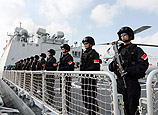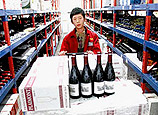
The exchanges, initiated by the U.S. and the EU, have already slowed down trade of solar products between the world's largest economies and forced some major industry players to cry out for support.
The whole industry risks a breakdown if things get even worse in the future, such as the EU imposing anti-dumping and countervailing duties on Chinese products after its investigations and China doing the same on products from the EU.
There is no sign that China will back down in this round of confrontation. It would like to prevent more such disputes by sending a signal that getting in trouble with the world's second largest economy on trade does no good to countries concerned.
If the EU and the U.S. are pinning hopes on pressuring China to gain their own industries competitive edge, it is wishful thinking as the sluggish domestic market and the general overcapacity of the solar industry are the real problems that will not easily go away.
It is unwise for them to blame domestic economic woes on trade because when the penalizing measures fail to work in the end, the governments will draw wider criticism from the public.
In fact, the external pressures can help Chinese solar product manufacturers to reshuffle the industry, pushing companies to tap emerging markets and some less competitive players to give up on the game.
They could also force Chinese producers to cooperate with their counterparts in other developing countries.
When trade frictions break out, it is wiser for governments to think through the consequences before they make further moves, as there is no winner in a trade war.

















 First alpine rail gets midnight maintenance
First alpine rail gets midnight maintenance


![]()
